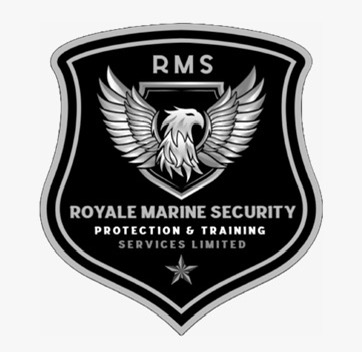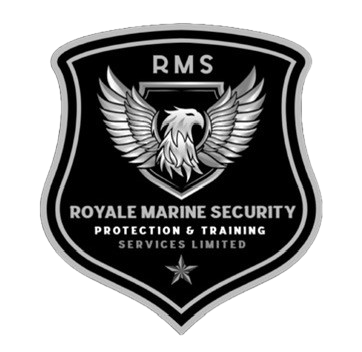In today’s increasingly unpredictable world, the presence of security guards in our daily lives is often taken for granted. Whether in shopping malls, corporate offices, schools, or residential complexes, these professionals play an indispensable role in maintaining safety and order. But the work of a security guard goes far beyond simply standing at an entrance with a watchful eye. Their responsibilities are multifaceted, requiring a unique combination of physical preparedness, mental alertness, and strong interpersonal skills.
The Evolving Role of Security Guards
Traditionally, the role of a security guard was viewed as basic – a figure placed to prevent theft or trespassing. However, the role has evolved significantly with modern challenges. Security guards today are trained to handle a wide range of situations, from emergency medical response to identifying cyber threats in high-tech environments.
Many security guards are equipped with advanced surveillance technology, operate alarm systems, and respond to suspicious activities proactively. Whether monitoring live security cameras or conducting regular patrols, they help deter crime by their very presence and preparedness to act swiftly.
Key Responsibilities
The scope of a security guard’s duties can vary depending on the location and the level of risk associated with the environment. Some of their core responsibilities include:
- Crime Prevention and Deterrence: One of the primary roles of a security guard is to deter criminal activity. A visible, alert guard serves as a deterrent for potential thieves, vandals, or trespassers. Their presence alone can often prevent crimes from occurring.
- Surveillance and Monitoring: Security guards may monitor CCTV cameras or conduct physical patrols of a property. In either case, they are constantly on the lookout for unusual or suspicious behavior and prepared to respond swiftly to any security breach.
- Access Control: Guards often manage who enters and exits a building. This role is especially important in sensitive environments such as corporate offices, hospitals, or government facilities. By controlling access, they help prevent unauthorized individuals from entering restricted areas.
- Emergency Response: In the event of an emergency, such as a fire, accident, or medical issue, security guards are often the first to respond. Many are trained in basic first aid, CPR, and how to manage emergency situations until professional help arrives.
- Customer Service: Surprisingly, security guards often double as customer service representatives. In many environments, they are the first point of contact for visitors, offering directions, answering questions, and ensuring the public feels welcome and safe.
The Importance of Training
The modern security guard undergoes extensive training, both in terms of physical capabilities and mental acuity. They learn to handle a wide variety of situations, including conflict resolution, de-escalation techniques, and first aid procedures. Many are trained to recognize behavioral patterns that could indicate potential threats. Additionally, as technology advances, security guards are trained to operate increasingly sophisticated security systems and equipment, ensuring they remain ahead of potential risks.
Skills Needed to Excel
Becoming a security guard requires more than just physical strength or standing watch for long hours. Key skills include:
- Alertness and Awareness: A security guard must remain vigilant and attentive to their surroundings at all times, quickly identifying any irregularities or potential threats.
- Communication: Clear communication is essential, whether with clients, law enforcement, or the general public. Security guards must be able to convey information succinctly and effectively.
- Problem-Solving Abilities: Not all situations are straightforward. Security guards often need to think on their feet, finding creative solutions to diffuse situations before they escalate.
- Physical Fitness: In many cases, guards may need to respond quickly to emergencies, pursue suspects, or control crowds. A high level of physical fitness ensures they can perform these tasks effectively.
Why Security Guards Matter
The value of security guards goes beyond immediate physical protection. They provide peace of mind. For businesses, security guards ensure employees and customers feel safe, which can boost morale and productivity. In residential areas, they foster a sense of community well-being, allowing families to feel secure in their homes. Their role also extends to the broader community by helping to deter crime and assisting in emergencies.
Additionally, security guards play an integral role in supporting law enforcement. While not a substitute for the police, they act as the first line of defense and can provide crucial information and assistance to law enforcement when needed.
The Future of Security Guards
As technology continues to advance, the role of security guards will likely become even more intertwined with technological solutions. While we may see more integration of AI, drones, and smart surveillance systems, the human element of security will remain irreplaceable. The ability to assess situations with emotional intelligence, make judgment calls in complex scenarios, and provide a calming presence cannot be easily replicated by machines.
Security guards will continue to be vital in an ever-changing landscape of threats and security challenges, adapting to new tools while maintaining their core responsibility: ensuring the safety and security of the people and places they protect.
In conclusion, security guards are more than just silent sentinels. They are dedicated professionals who play a crucial role in safeguarding communities, businesses, and individuals from a wide range of potential threats. As the world grows more complex, their expertise and presence will remain invaluable, offering peace of mind and a safer environment for all.



